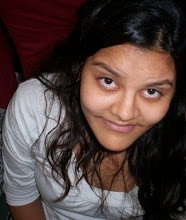The IB is a great course, which allows you to think rationally, keeping in mind most perspectives. It allows one to explore an idea beyond the limits of the textbook, hence forming his/her own view on the idea. Being part of the IB course was a big eye-opener of sorts for me. I learnt many things that I was earlier ignorant about. Moreover, it allowed me to look at these things in my own way, without any inhibitions.
The one thing I learnt in the IB that will stay with me forever is the way art is viewed, and the way art is studied. Learning about different movements that took place in the history of art is very important, but the IB allows one to interpret these movements, analyse the gradual course of these movements and then work with each movement in a unique manner. The one movement that I could relate to in the history of art is the Pop Art movement.
Pop Art was meant to break all traditional rules of art; it is that movement of art through which everyday objects that are not considered of any artistic value are brought into the art scene, and are glorified by making them into art works. Moreover, pop art was made to appeal to the masses, and the thing that one could identify with the masses was machines. Pop art was 'machine made' and in bulks. It was printed over and over again, like machine-made goods. As expected, pop art originated from advertising.
It was overwhelming for me to learn about pop art, as the concept of glorifying something as trivial as soup cans really struck me. It was hard for me to digest that paintings of recurring soup cans fetched big money. After being exposed to only the traditional art, like still-life, figure drawing and so on, pop art came as a fresh breath of air. One of my favourite artists is Andy Warhol, the father of pop art. A lot of my art works are based on the principles of pop art, as I can relate to it to a great extent. The IB did allow me to find out about this movement in art, which has played a big part in my artworks.
Another thing that I learnt in the IB that will stay with me for a long time to come, is TS Eliot's poetry. If there was one thing that I utterly disliked earlier, it was poetry. Learning Eliot's poetry in IB English provided with a whole new perception to me, as to how one can make poetry interesting. When I studied in the Indian system, we were forced to learn poetry strictly the way the teachers asked us to. There was only one right answer in poetry. English was converted into an objective paper with only right or wrong answers.
TS Eliot wrote about the degradation of the world, and predicted the future of the world, which would be a wasteland. There are layers to his poetry; layers which are open to interpretation. I had no idea that poetry could be so moving, so inspired. Eliot's poetry led me to do a lot of research, it inspired me to make sketches and so on. I was thoroughly moved by his poetry, and I am sure it will remain with me for a long time to come.
In the IB, we are encouraged to think outside the box. We are asked to do a lot of background reading. Moreover, we are expected to make interesting connections between poetry and other areas that seem irrelevant to literature like science, etc.
Talking in broad terms, the IB has helped me question everything I learn. All these questions help me discover the connections between the various areas of knowledge. There are amazing connections that I derived between subjects here at the IB. It feels like more complete education because whatever we learn is questioned and scrutinized endlessly.
